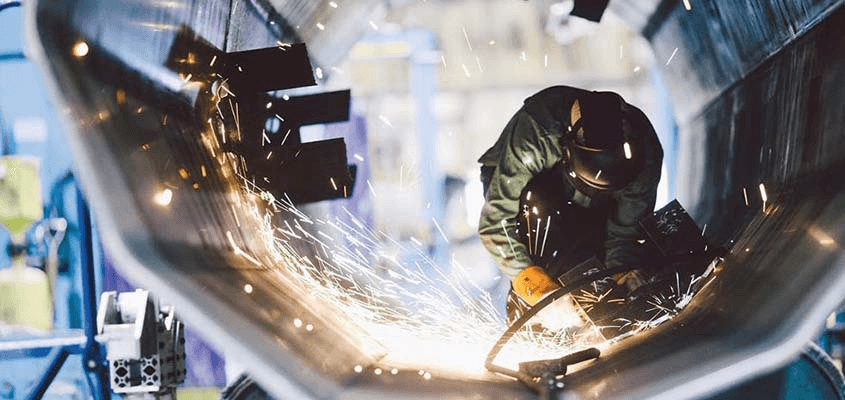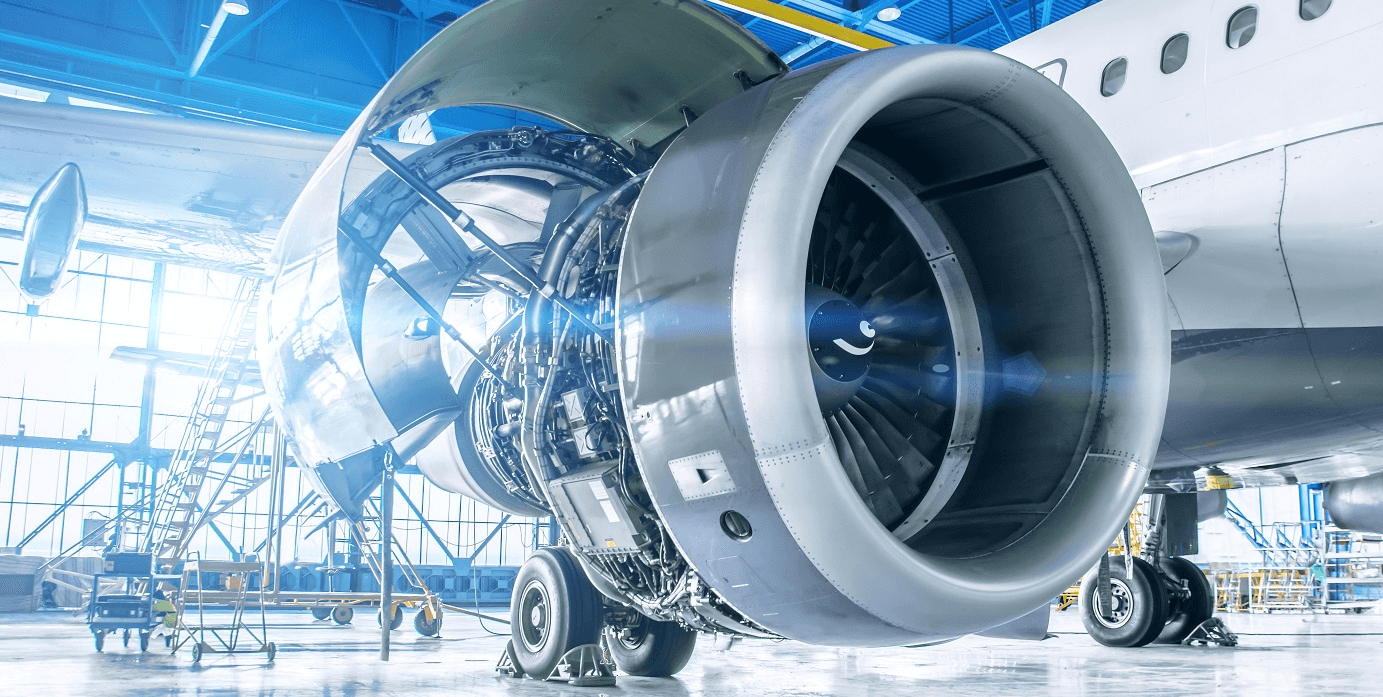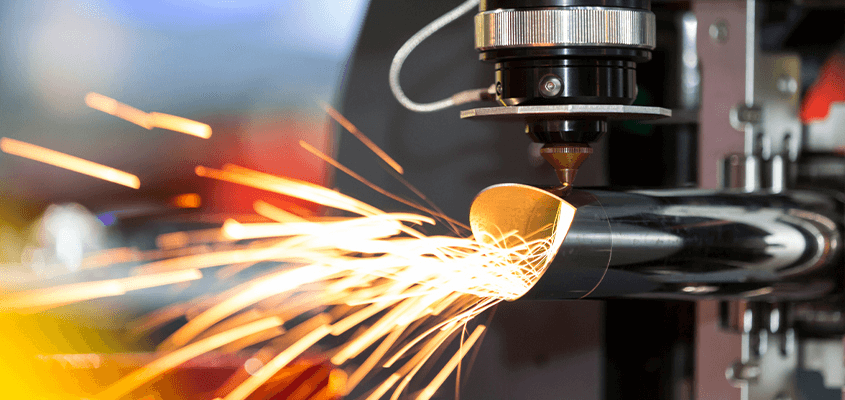Jul 16th 2025
 |
About Arc-Zone: Why It Matters for National Defense Infrastructure Welding
Arc-Zone was founded in 1998 by Jim Watson Jr., aka "Joe Welder,"with a clear mission: support welders with reliable tools, real-world expertise, and service they can count on.
Our team lives and breathes the trade. We've grown with the welding industry by staying focused on what really matters: gear that works, advice that helps, and support that actually matters.
From the beginning, we’ve been there for projects where precision isn’t just appreciated; it’s required. That’s especially true in national defense, where strong, clean welds help hold the line.
Fighter jets, submarines, and tanks, are machines that can’t afford weak spots. We’re proud to help make these projects possible by supplying the tools welders count on.
Welding: The Backbone of Military Equipment
Military gear takes a beating: desert heat, saltwater exposure, and freezing cold. Welds have to hold strong; there are no excuses.
That’s why defense agencies enforce some of the most demanding standards. These systems have to be rugged, dependable, and built for the long haul.
Industry professionals work closely with government and industry leaders, munitions technology divisions, and defense agencies to ensure that every weld meets the mark.
Advancing National Security
Defense technology never stops evolving. Today's threats require innovation and precision in everything from robotics and aerospace to undersea platforms.
Welding is part of that equation. At events like the annual Supply Chain Symposium, defense experts and leading industry executives share how precision welding fits into integrated precision warfare, undersea operations, and strategies for countering threats.
We monitor these shifts closely so we can help our clients gain cutting-edge insights and stay ahead. Two-day events like these often feature conversations with DoD senior officials, Navy leaders, and others working to boost military power through more innovative engineering.
Building the Workforce
Across the country, training centers are helping develop the next wave of skilled welders. These folks aren’t just learning the basics; they’re being trained to meet the high-bar national defense work demands.
We back these efforts by making field-ready tools accessible. Whether you're brand new or running point on a significant project, having solid, reliable equipment matters.
 |
Why is welding important in the aerospace industry?
Welding in aerospace is high-stakes. Fighter jets, cargo planes, and other aircraft require strong, lightweight welds that can take the pressure, literally.
Safety Comes First
Aircraft push limits every day.
One bad weld?
That could mean big problems. That’s why aerospace welders use advanced techniques like electron beam welding and robotics to make sure every connection is flawless.
We stock tools designed to deliver this level of precision. When it comes to aerospace welding, good enough just isn’t.
Weight Matters
In the air, every ounce counts. Lighter structures improve fuel efficiency and allow for more mission-critical gear. Precision welding makes that balance possible, as well as strong joints without unnecessary weight.
Specialized Materials
Military aircraft rely on high-performance metals. They’re tough to weld and require exact tools and skills. We source gear built for that challenge. As Pentagon demands evolve, we're already helping welders stay ahead of the curve.
What is the MOS for welding in the military?
Military welders are essential to keeping things running. Every branch has its own job codes for these skilled trades:
- Army - MOS 91E Allied Trade Specialists handle metalwork, machining, and welding support across all kinds of missions.
- Navy - Hull Maintenance Technicians (HT) are responsible for repairs and fabrication on ships and submarines—often under tough, unpredictable conditions.
- Marines - MOS 1316 Metal Workers support field ops, gear maintenance, and construction in active environments.
- Air Force - Aircraft Metals Technology (2A7X1) airmen manage precision metal fabrication and repairs critical to keeping aircraft ready.
Career Path and Training
Military welding isn’t just tough; it’s technical. Service members train to meet strict quality standards and often work under pressure; that experience transfers well after service.
Many go on to work in government shops, with defense contractors, or at top-tier fabrication facilities. Congress has recently increased funding and budget support for veteran employment and defense-related training, which opens even more doors.
 |
Why is welding important in the development of our country?
Welding helped build this country. It's part of America's foundation, from historic bridges and battleships to clean energy plants and space tech.
- Infrastructure - The infrastructure we depend on is welded into place from coast to coast. As older systems need repair or replacement, welders will be on the front lines of the rebuild.
- Jobs and Economic Growth - Welding offers solid, well-paying careers in every state. Industry exhibitions spotlight the latest advancements in robotics and automation and help welders connect with new opportunities. These events also give people a chance to hear directly from industry leaders about where the field is headed.
- Reshoring and Innovation - As manufacturing returns stateside, welding is playing a central role. At Arc-Zone, we support that shift by helping large and small shops get the gear they need to stay competitive. At annual conferences and exhibitions, senior officials and defense experts continue to highlight welding’s role in national security and economic momentum.
What is welding in the military?
Military welders operate under pressure, both figuratively and literally. Their work is varied, but always mission-critical.
- Field Repairs - When something breaks, welders are there. Fixing a cracked bracket or restoring power to a generator might not make headlines, but it can be the difference between a mission that moves forward and one that doesn’t.
- Underwater Welding - Some Navy divers are trained to weld underwater, handling submerged repairs on submarines, sea platforms, and infrastructure tied to undersea warfare.
- Mobile Units - Welding teams go wherever needed: ships, combat zones, and remote bases. They work with what they have to get the job done fast. We supply the kind of field-tested gear these mobile teams rely on when time is tight and the stakes are high.
- High-Security and Classified Work - Some military welders work on classified projects. These roles require security clearances, exact certifications, and tools that meet the strictest standards. These jobs support big-picture initiatives from the Pentagon and the presidential administration, and demand perfection every time.
- Inspections and Standards - In military welding, nothing gets a free pass. Every weld is inspected, tested, and verified for strength and durability. The standards are high for a reason. We’re proud to support the welders who meet those demands every day.
Conclusion
Welding stands as a fundamental pillar of National Defense. From mobile repair teams to experts in classified facilities, welders keep the mission moving and the machinery running.
At Arc-Zone, we’re honored to supply the tools and knowledge they need to do the job right. Check out our selection of defense-ready gear at Arc-Zone, and let’s connect to learn how we can support your next project.
